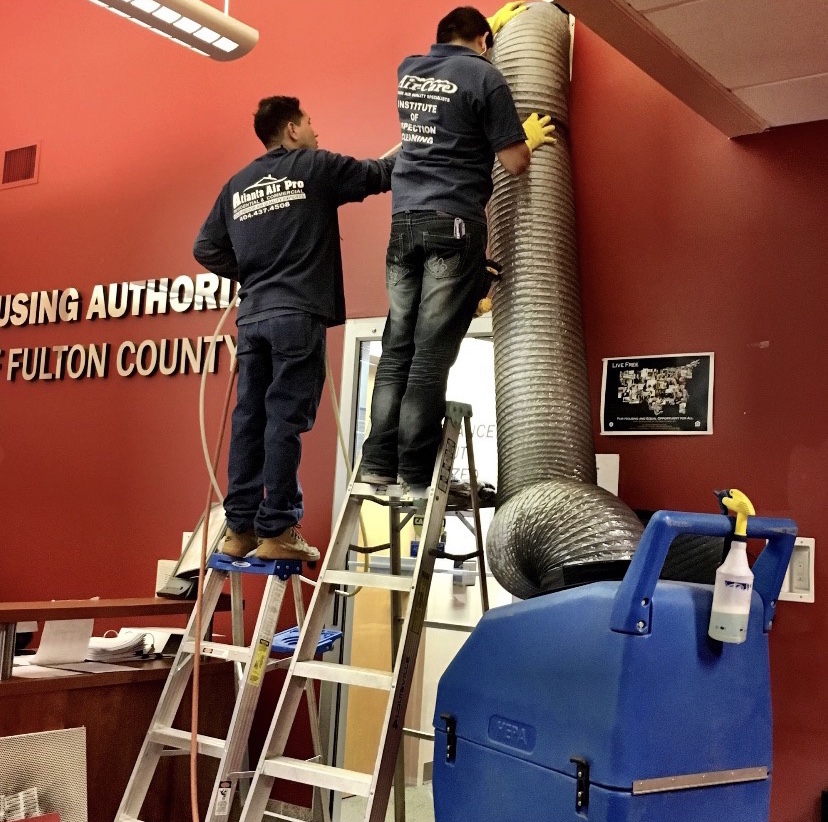Air conditioning, commonly known as HVAC, plays a significant role in maintaining pleasant indoor environments in both home and business spaces. As http://anantsoch.com/members/billtrial6/activity/1305103/ move through any workspace, you might not think twice about the systems working silently behind the curtains to ensure that the air is at a desirable temperature and quality. However, grasping the principles of physical chemistry that govern these systems can greatly enhance our ability to manage them properly.
In this article, we will examine into the theory of HVAC, uncovering how these systems function and why they are necessary. From introductory concepts for novices to tips on optimal maintenance and energy usage, we will review various aspects of HVAC systems. Whether you're considering an upgrade, looking to enhance indoor air quality, or just wanting to reduce your energy bills, this piece will provide the necessary knowledge you need to make informed decisions about your heating and cooling systems.
Understanding HVAC Systems
Heating, Ventilation, Cooling, and HVAC , often referred to as HVAC, is an integral aspect employed for maintaining a comfortable atmosphere in enclosed environments. At its foundation, an HVAC configuration functions by regulating the heat, dampness, and atmospheric conditions of spaces in residences and commercial facilities. It does this through a set of linked elements that perform the necessary functions of heating, chilling, and ventilation. Whether it’s a home space or a spacious workplace facility, grasping how these systems operate is essential for efficient climate control.
The primary components of an HVAC system consist of the heat source, cooling mechanism, fresh air system, and the climate control device. Heating can come from different methods, including heat sources, thermal pumps, or heating boilers, which generate warmth during frigid seasons. For cooling, cooling units or systems like thermal pumps are utilized to remove warm air from enclosed air, ensuring a refreshing atmosphere in the warm months. Air exchange plays a vital role in providing outdoor air flows through the location, aiding to maintain breathability and eliminate floating impurities.
Moreover, proper maintenance is essential to ensuring HVAC systems function effectively and remain operational for extended periods. Routine inspections can identify common issues such as clogged filters or refrigerant leaks before they escalate into more major concerns. Knowing how these systems function not only assists residential managers and business owners make informed judgments about functioning and maintenance but also empowers them to establish pleasant home and working spaces year-round. spintax

### Common HVAC Problems and Remedies
Homeowners often encounter a range of HVAC issues that can disrupt convenience and efficiency. One common problem is insufficient heating or cooling. This can occur due to a faulty thermostat, blocked ducts, or low refrigerant levels. To tackle this problem, start by verifying the thermostat settings and changing batteries if needed. Next, examine and clean air filters and ensure that vents are clear. If issues persist, it may be required to call a qualified technician to check for refrigerant leaks or system malfunctions.
Another regular concern is excessive noise coming from the HVAC unit. Noises like clattering, grinding, or hissing can suggest various problems, from loose components to malfunctioning motors. Homeowners should first inspect the outside unit for any debris that might be causing noises and make sure all screws and fasteners are tight. If the noise is severe or ongoing, it is recommended to seek professional help to diagnose and fix the underlying issue, as ignoring it can result in more significant damage.
Finally, poor indoor air quality is an aspect that many do not recognize as directly related to HVAC systems. why not try here as dust buildup and allergens can stem from contaminated air filters or inadequate ventilation. To improve air quality, routine maintenance is essential, including frequent filter changes and duct cleaning. Installing air purifiers and selecting the right filters for your system can greatly enhance indoor air quality and overall well-being in the home.
Energy Efficiency and Advancements in HVAC
The HVAC industry has seen major advancements in energy effectiveness, primarily due to the rising demand for green solutions. Modern units are designed to optimize energy consumption while maintaining comfort in homes and business structures. Innovations such as adjustable speed motors, zoned heating and cooling, and advanced heat exchangers enable HVAC units to operate more optimally, reducing power use and lowering utility bills.
Smart technology implementation is another critical advancement driving energy efficiency in HVAC systems. Smart thermostats and home automation systems provide homeowners with unparalleled control over their heating and cooling preferences. These devices can adapt to user habits, modify settings automatically based on presence, and provide instant energy consumption information, all contributing to a more effective HVAC operation. As air conditioner installation continue to evolve, they will play an increasingly critical role in energy efficiency.
Additionally, alternative energy solutions, such as solar-powered HVAC systems, are changing the field. These units capture solar energy to minimize reliance on conventional power options, offering both ecological benefits and cost savings. Ground-source heating and cooling is another novel solution, utilizing the earth's stable heat to provide effective environmental regulation. As these solutions become more available, homeowners and companies can make knowledgeable choices that align with their dedication to eco-friendliness and resource conservation.
